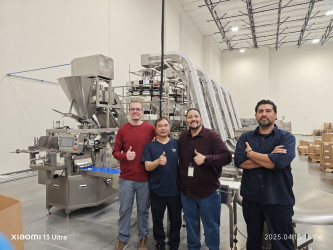Bowl Type Inclined Conveyors: Revolutionizing the Food Industry
Introduction
In the fast-paced world of the food industry, efficiency, hygiene, and safety are paramount. One technological marvel that has gained significant popularity in recent years is the bowl type inclined conveyor. Designed to meet the specific needs of the food industry, these conveyors have revolutionized the way food products are transported, ensuring a seamless and efficient production process. In this article, we will explore the importance of bowl type inclined conveyors in the meat and food industry, discuss their advantages, and delve into the crucial aspect of daily maintenance.
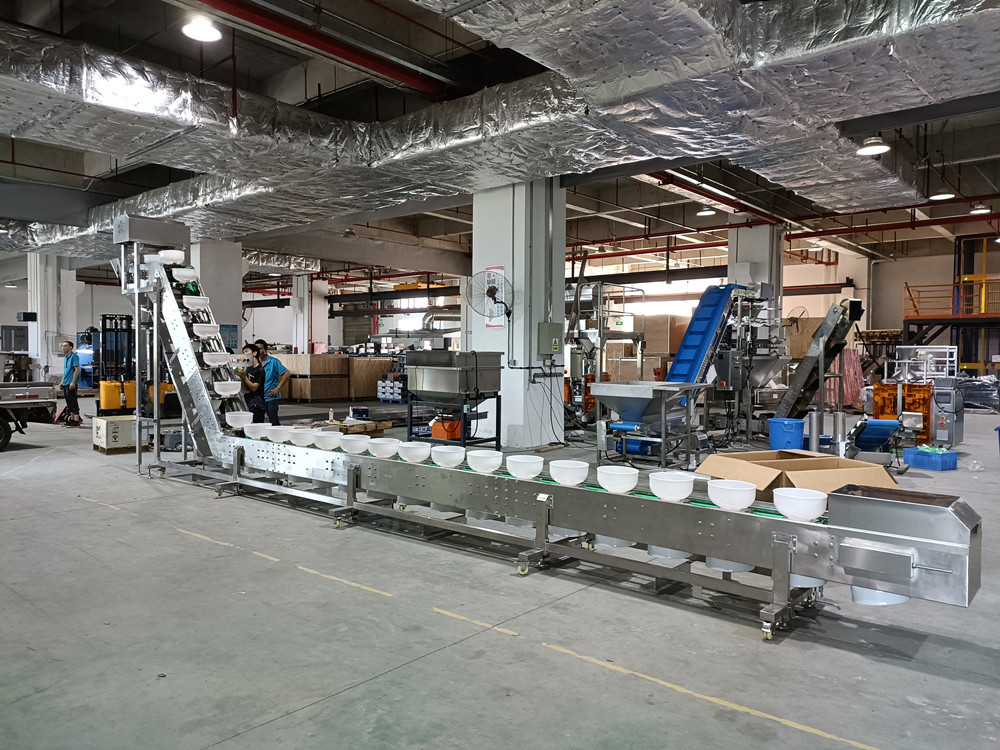
The meat and food industry requires precise handling and transportation systems to maintain quality and safety standards. Bowl type inclined conveyors have proven to be a suitable choice for these industries due to their unique design and capabilities.
With strict regulations and concerns about cross-contamination, bowl type inclined conveyors provide an ideal solution. The design of these conveyors ensures that the product remains contained within the bowl, reducing the risk of spills and preventing contact with external contaminants. This feature is especially critical in meat conveyance, where maintaining the integrity of the product is of utmost importance to ensure consumer safety.
Moreover, the bowl type inclined conveyors are specifically constructed with materials that are resistant to corrosion, making them suitable for the food industry. Stainless steel, for instance, is a common choice due to its durability, easy cleaning properties, and resistance to rust, ensuring that the conveyors meet the high standards of hygiene required in food processing.
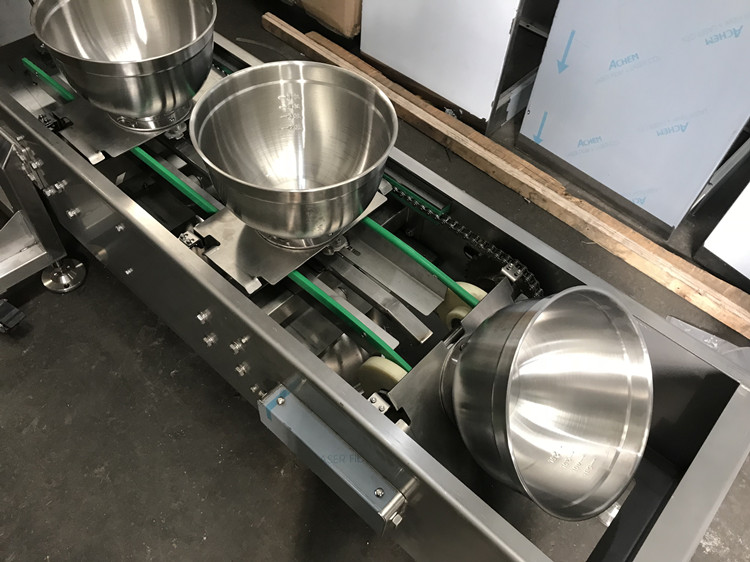
1 Increased Efficiency and Productivity
One of the significant advantages of bowl type inclined conveyors is their ability to streamline production processes, leading to increased efficiency and productivity. These conveyors are designed to transport products vertically or at an inclined angle, allowing for smooth movement between different production stages.
2 Customizable Design for Diverse Applications
Bowl type inclined conveyors come in various designs and configurations, allowing for customization to suit specific applications. Whether it's transporting delicate food products or heavy-duty meat cuts, these conveyors can be tailored to meet the unique requirements of different industries.
3 Gentle Handling and Minimal Product Damage
In food processing, preserving the integrity of the product is crucial to maintain quality and customer satisfaction. Bowl type inclined conveyors ensure gentle handling of food products, reducing the risk of damage or deformation during transportation.
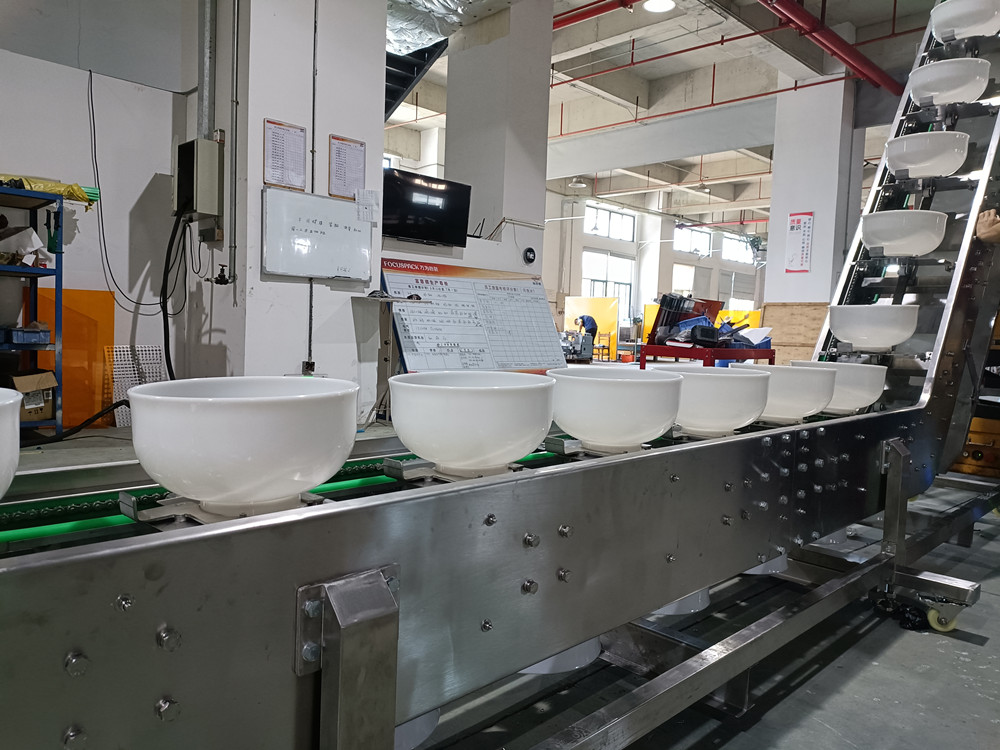
Daily Maintenance
To ensure the longevity and optimal performance of bowl type inclined conveyors, regular maintenance is essential. Implementing a robust daily maintenance routine helps prevent breakdowns, minimizes downtime, and maximizes the lifespan of the equipment.
1 Cleaning and Sanitation
Hygiene is of paramount importance in the food industry, and bowl type inclined conveyors should be cleaned thoroughly and regularly to meet industry standards. Cleaning protocols should include the removal of any debris, residue, or buildup from the conveyor components, such as the bowl, tracks, and discharge chute.
Cleaning agents approved for use in food processing areas should be utilized, and all surfaces should be sanitized to eliminate any potential contamination. Regular inspections should be carried out to identify any signs of wear, damage, or corrosion, and appropriate actions should be taken to address these issues promptly.
2 Lubrication and Belt Tension
Proper lubrication of bearings, gears, and other moving parts is crucial to maintain smooth operation and prevent excessive friction. Bowl type inclined conveyors should be equipped with appropriate lubrication points, and a regular lubrication schedule should be followed.
Additionally, the tension of the conveyor belt should be regularly checked to ensure proper functioning. A loose or overly tight belt can cause slippage or premature wear, leading to operational inefficiencies and potential breakdowns. Adjustments should be made as necessary to maintain the optimal tension for smooth and reliable product transportation.
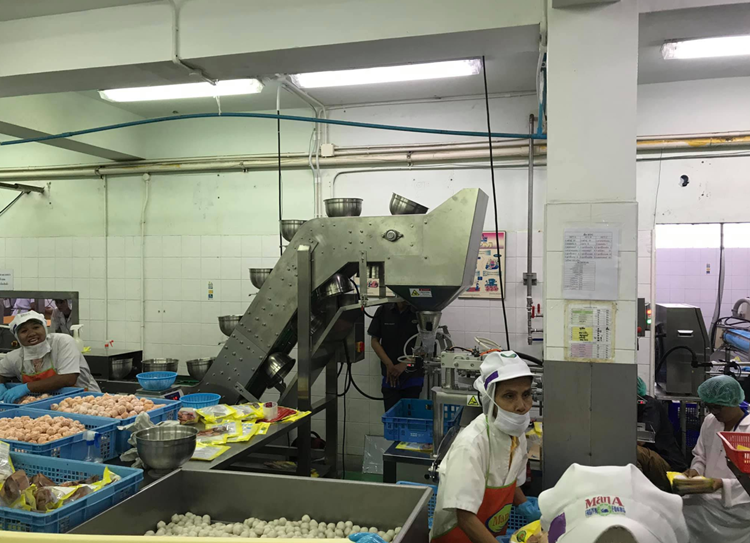
Conclusion
Bowl type inclined conveyors have become an indispensable component in the meat and food industry, providing efficient, hygienic, and safe transportation solutions. Their suitability for meat conveyance and other food processing applications, along with their various advantages, make them an integral part of modern production lines. By ensuring daily maintenance practices are followed, including cleaning, lubrication, and belt tension checks, these conveyors can operate optimally and contribute to seamless food processing operations. With their customizable design, gentle handling capabilities, and ability to enhance productivity, bowl type inclined conveyors continue to shape the future of the food industry.
Sources:
- "Inclined Conveyors in the Food Industry," Thomasnet, https://www.thomasnet.com/articles/motion-control/inclined-conveyors-in-the-food-industry/
- "Bowl Feeders & Bowl Type Inclined Conveyors," Alphamation, https://www.alphamation.co.uk/bowl-feeders-and-bowl-type-inclined-conveyors.html
- "Advantages of Vibratory Bowl Feeders in the Food Industry," Fortville Feeders, https://www.fortvillefeeders.com/advantages-of-vibratory-bowl-feeders-in-the-food-industry/
